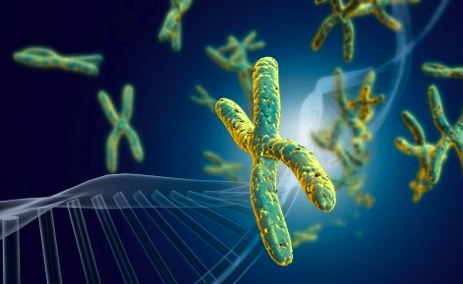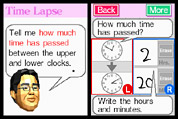The study was conducted by Prof. Paul L. Dawson, a food microbiologist, who decided to experiment with “double dipping” after watching a Seinfeld re-run in which a character named “Timmy” objects to George’s dubious dipping habits.
science

Domino's Announces Online Pizza Tracking That's Accurate To 40 Seconds
We are living in the future!
“We’re filling that black box of uncertainty — ‘Has my pizza been forgotten?’ — with information and entertainment,” says Chris McGlothlin, technology chief at Domino’s.
../../../..//2008/01/15/the-fdas-announcement-today/
The FDA’s announcement today that cloned beef and dairy is safe was met with criticism by several consumer groups, which isn’t surprising, and the US Department of Agriculture, which is—they say that food producers should continue to honor a “voluntary moratorium” for the indefinite future…

Decode Your Genome For $1,000
For $1,000, a small California-based company called 23andMe (financed in part by Google) will decode your DNA and tell you whatever it can about your predispositions, health risks, and family traits—for example, whether or not you’re in line for the same heart disease that affected your father and grandfather, which is what the author of the Wired article wondered. (Turns out he’s not, but he’s at a higher risk of developing glaucoma. When one door opens…)

Health Record Privacy Law Is Messing Up Research
Just days after a deputy director of national intelligence told Americans that we need to rethink our concepts of privacy, comes news that it may, in fact, be harming us in the long run. In a recent national survey, nearly 70% of research scientists said the 2003 Health Insurance Portability and Accountability Act (HIPAA) is “impeding scientific research, stalling clinical studies and halting others altogether.”
../../../..//2007/10/17/wired-talks-to-farmers/
Wired talks to farmers who own cloned livestock and dairy cows—2nd and 3rd iterations of valuable original “models.” The FDA hasn’t officially approved cloned meat and milk for supermarkets yet, though, and lots of consumers still freak out. (Did you when you read that first sentence?) [Wired]
Neuromarketing Promises Greater Manipula- er, "Effectiveness"
Neuromarketing is a new audience measurement approach that uses functional magnetic resonance imaging (fMRI), along with other fancy brain reading machines formerly reserved for the medical industry, to observe and measure brain activity in people exposed to advertisements. The resulting data can be used to craft more effective ads and target them more accurately to the right consumer. Says the director of a neuromarketing consultancy, “Emotions cannot necessarily be accurately described. We can see the discrepancy between what you say and what your brain says, and reduce the margin of error.”

Exercise Doesn't (Necessarily) Make You Lose Weight
Good news if you hate the gym, bad news if you’ve invested your time, money, and faith in the body-shaping power of daily workouts: despite what most people think, there still isn’t overwhelming evidence that exercise will reduce weight. Over the past several decades, research continues to show that exercise will definitely increase your body’s energy needs but not always reduce fat, and that a sedentary lifestyle and obesity are linked but not in a proven cause-and-effect relationship. Meanwhile, the popular press has promoted and mythologized a sort of “faith-based” concept of exercise as a key requirement for weight loss.

Are Brain-Training Video Games Effective? The Japanese Think So
“Brain Age” and its recently released sequel are hugely popular video games in Japan and the US. What’s unusual about this is that the games are made for and marketed to “older people” (which in video game language means “anyone over 25”) as a way to improve your mental acuity by keeping your cognitive skills at peak levels. Does any of it work, or is it just a self-help fad for the 21st century? Sharpbrains.com interviews Go Hirano, a Japanese entrepreneur (their description, not ours) who provides a general overview of the current state of “brain training” and its borderline-scientific underpinnings.

Beware Viagra's Possible Love Side Effects!
And now, an article for the men. Dang!—it turns out Viagra has a sneaky side effect of making you feel love and not just arousal whenever you take it. In lab studies, it increases the amount of oxytocin in rats, which is a hormone associated with “feelings of love,” including nursing and childbirth as well as sexual pleasure. (This should not be confused with the drug OxyContin, which does something else entirely, and which tends to be widely abused by lab rats in the midwest.)

FDA Plans To Study Effects of Direct-To-Consumer Prescription Drug Ads
Direct-to-consumer drug ads show pretty pictures of people laughing while running through fields of flowers and enjoying romantic dinners and such while a monotone voice speaks about side-effects like diarrhea, blot clots, and death. You’re watching, but are you really listening?

Organic Fruit Healthier Than Standard Produce
A ten-year study found that organic tomatoes contain twice as many antioxidants as conventionally grown tomatoes. The study published in the Journal of Agriculture and Food Chemistry claims that when compared to standard produce, organic strains contain higher levels of two high blood pressure-fighting flavonoids.
These findings also confirm recent European research, which showed that organic tomatoes, peaches and processed apples all have higher nutritional quality than non-organic

Save Money With The New And Improved 5 Second Rule
Everyone knows the 5 second rule. If you drop a piece of food on the floor, and then pick it up before you can count to five, you won’t die of salmonella. Right? Eh, maybe. They took a look at this one on that show Mythbusters, and now some real scientists have given it a once over. The results are delicious.

Rice Containing Human Genes Approved By The USDA
For the first time, the USDA has granted preliminary approval for large-scale planting of an engineered food crop that contains human genes.

Don't Learn Science From Happy Meal Bags
In case there was any doubt before, this picture confirms that you really shouldn’t learn science from Happy Meal bags. —MEGHANN MARCO

It’s Science: The Brains of Spendthrifts Fuction Differently Than Tightwads
We are a definitely a tightwad, but what does that mean, really? That we avoid buying things, even if we know we need them? That we still don’t own a microwave? What’s wrong with us? The New York Times has the answer, via Stanford and Carnegie Mellon Universities.

Brain Scans Predict If You’ll Buy Something
- When people see something they want to purchase, a portion of the brain called the nucleus accumbens “lights up” on a brain scan. If the price is too high, another region of the brain called the insula is activated and the mesial prefrontal cortex (MPFC) is deactivated, Dr. Brian Knutson of Stanford University in California and colleagues report.


